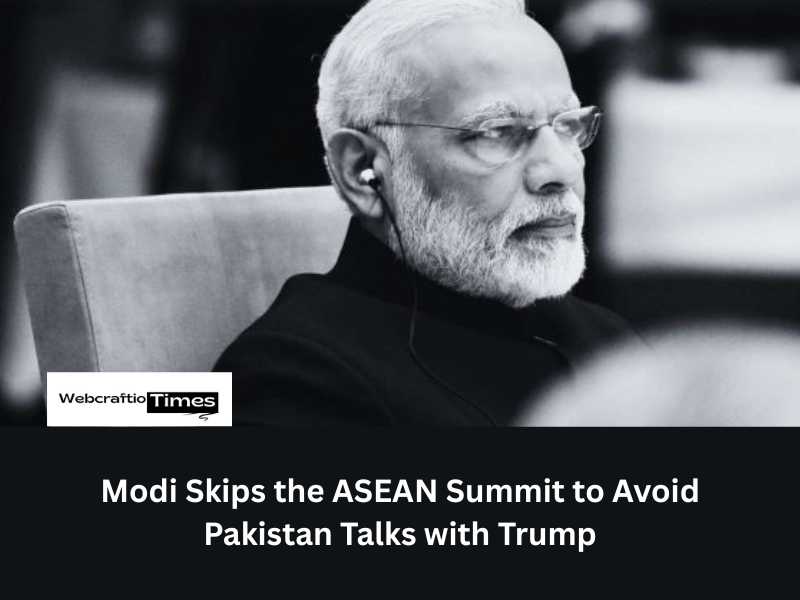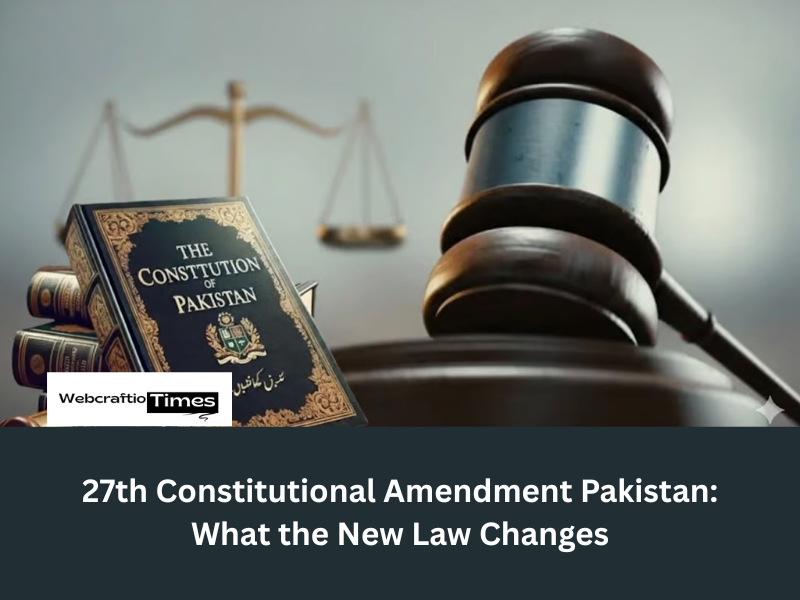Modi Skips the ASEAN Summit to Avoid Pakistan Talks with Trump
Indian Prime Minister Narendra Modi raised diplomatic eyebrows across Asia last week. Modi skips the ASEAN Summit, choosing to attend the regional meeting virtually instead of in person in Kuala Lumpur, Malaysia. This decision immediately sparked intense speculation. The official explanation cited ongoing Deepavali celebrations. However, multiple news reports and diplomatic sources point to a calculated geopolitical move. The prime minister’s abrupt change of plans successfully avoided a potentially embarrassing face-to-face encounter with US President Donald Trump.
The Real Reason Modi Skips the ASEAN Summit
Diplomatic sources suggest the prime minister’s decision revolved around one highly sensitive topic. That topic is Pakistan. The key concern for New Delhi officials was President Trump’s tendency. He repeatedly claims personal credit for mediating a ceasefire between India and Pakistan last May. India vehemently rejects any claims of third-party involvement in its bilateral disputes.
Read More: Israel strikes Gaza: 90 Palestinians Killed in Overnight Strikes
Officials feared an impromptu remark from Trump on the sidelines of the ASEAN event. Such a public claim would undermine India’s long-standing position on Kashmir and Pakistan. The Indian government insists the ceasefire was resolved directly by its own military and diplomatic channels. By ensuring Modi skips the ASEAN Summit in person, a high-risk bilateral meeting with Trump became impossible. This move successfully protected India’s narrative of strategic autonomy.
Navigating a Volatile Relationship
Relations between New Delhi and Washington have been strained recently. The ongoing friction is about more than just Pakistan. US President Trump recently imposed steep, 50% tariffs on Indian exports. Half of this tariff penalty is explicitly due to India’s continuing purchase of discounted Russian oil. This trade dispute remains unresolved. The lack of a breakthrough in trade negotiations provided little incentive for an in-person meeting. Why risk an awkward public appearance with no clear bilateral gain? When Modi skips the ASEAN Summit, he avoids giving the US leader a platform for unscripted trade comments. The decision reflects a growing wariness within the Modi government toward the unpredictable nature of the Trump administration.
The decision is fuelled by internal conflicts.
The timing of the summit was critical for domestic reasons. The ASEAN meeting coincided with the start of the crucial state elections in Bihar. Prime Minister Modi is the key campaigner and face of his Bharatiya Janata Party (BJP). Any damaging comment from President Trump could be weaponized by the opposition at home. Imagine a headline: “Trump forces Modi to promise no war with Pakistan.” This would be politically costly. By campaigning in Bihar instead, and making sure Modi skips ASEAN Summit, the prime minister shielded himself. He avoided creating an easy target for his political opponents during a sensitive election period. The domestic political calculus appears to have heavily influenced this foreign policy choice.
Diplomatic Fallout: What Does the Absence Mean?
Modi’s absence carries significant diplomatic costs for India’s “Act East” policy. India aims to deepen ties with Southeast Asian nations. The ASEAN Summit is the premier venue for advancing this strategic goal. When Modi skips the ASEAN Summit, it signals to regional partners a distraction. It risks creating a vacuum that rivals might fill. China, in particular, continues to solidify its economic dominance in the region.
The personal connection and chemistry forged during in-person diplomacy are invaluable. Foreign Minister S. Jaishankar represented India on the ground. However, a foreign minister’s presence does not carry the weight of a prime minister’s. India’s critics were quick to pounce. Opposition leaders claimed Modi skips the ASEAN Summit because he is simply afraid to face Trump. They say the move highlights a failure in Modi’s personalized foreign policy approach.
A Pattern of Avoidance
This is not the first time the Indian prime minister has avoided a face-to-face meeting with Trump recently. Modi declined an invitation to the Gaza Peace Summit in Egypt weeks prior. Trump was a co-chair of that event. This suggests a pattern of selective engagement. New Delhi is wary of forums where it risks being pressured on sensitive issues. Officials carefully assess the risk-reward ratio of every high-level meeting.

The risk of an unscripted moment over Pakistan or Russian oil was too high at the ASEAN venue. When Modi skips ASEAN Summit, it is a clear statement. It confirms India’s priority is protecting its domestic political image and diplomatic red lines. The decision to make Modi skips the ASEAN Summit a virtual attendance shows a new level of caution.
The Future of India-US Dynamics
Despite the diplomatic dust-up, both nations emphasize their strategic partnership remains strong. Secretary of State Marco Rubio met with External Affairs Minister S. Jaishankar at the sidelines of the summit. Rubio assured India that US ties with Pakistan do not come at India’s expense. The trade negotiations continue behind the scenes. However, this incident is a clear indication of a difficult phase. The relationship is under stress due to the unpredictable nature of American foreign policy statements. India values its strategic partnership with the US immensely. Yet, it will not compromise its core national interests.
The next opportunity for a Modi-Trump meeting will likely be the upcoming G20 summit in South Africa. Given Trump’s recent statements about that venue, a meeting there also seems unlikely. The strategic choice to ensure Modi skips ASEAN Summit was a diplomatic win for India’s self-interest. It successfully blocked an immediate political risk. It also signaled New Delhi’s determination to manage its own complex foreign policy. The world watches to see how the two leaders will next interact.
Frequently Asked Questions (FAQs)
1. Which summit did Modi skip to avoid meeting with Donald Trump?
A: Prime Minister Modi opted for virtual attendance at the ASEAN Summit (Association of Southeast Asian Nations) held in Kuala Lumpur, Malaysia.
2. What was the main diplomatic reason cited for why Modi skips ASEAN Summit?
A: The primary reason reported was the desire to avoid a public discussion where Donald Trump might repeat his claim of having mediated a ceasefire between India and Pakistan.
3. What was the official reason given for Modi’s virtual attendance?
A: The official reason provided by the Malaysian Prime Minister was the ongoing Deepavali celebrations in India.
4. Besides Pakistan, what other tensions exist between India and the US?
A: Key issues include US-imposed tariffs on Indian exports and India’s continued purchase of Russian oil, which has strained the trade relationship.
5. How did domestic politics influence the decision that Modi skips ASEAN Summit?
A: Modi’s team reportedly did not want to risk any embarrassing public comments from Trump that his rivals could use against him during the crucial ongoing Bihar state elections.
For More News and Updates: Visit Us



